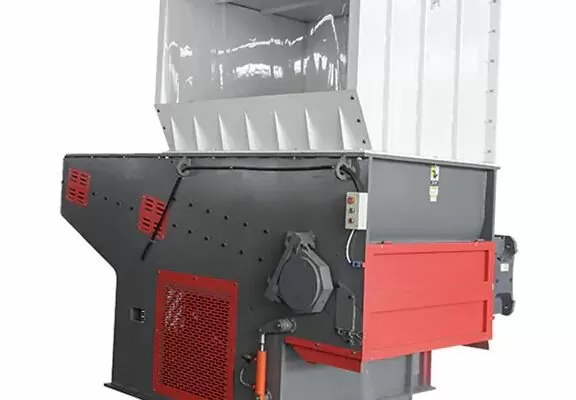Let’s be honest. Thick plastic is a nightmare. I’ve seen factories halt production just because bulky HDPE blocks or chunky ABS pipes were too much for their outdated shredders. The frustration is real. Nobody wants to invest in expensive equipment only to watch it choke. That’s why this question keeps popping up: can a shredder really handle thick plastic, or is that just marketing talk?
Yes, a shredder can handle thick plastic—if it’s designed for it. The trick lies in machine design, torque, and cutter configuration. Industrial-grade shredders with heavy-duty rotors and robust gearboxes can chew through even 100mm thick sheets or solid plastic chunks. But not all shredders are created equal. Pick the wrong one, and you’ll end up with broken blades and tears in your budget.
And that’s where things get interesting. The answer isn’t just “yes or no.” It’s about knowing which shredder matches which job.

What makes thick plastic so challenging to shred?
Thick plastic isn’t just plastic—it’s density, durability, and stubbornness rolled into one. High-density polyethylene (HDPE) pipes, rigid polycarbonate sheets, or bulky polypropylene crates are built to resist force, not yield to it.
According to material hardness studies, the stress required to break thick HDPE is nearly double that of thin film plastics. That means a shredder has to deliver high torque, not just speed.
How do industrial shredders handle tough materials?
It all comes down to torque. Unlike your office paper shredder that survives on speed, industrial shredders work slowly but powerfully. A two-shaft shredder, for example, uses counter-rotating blades to grab and pull the material apart.
Some heavy-duty models are equipped with hardened steel cutters and reinforced gearboxes. These upgrades allow them to slice through even thick ABS or PVC boards. Single Shaft Shredder Machine For Rigid Material shows that low-speed, high-torque shredders reduce jamming by 70%.
Are there limits to what a shredder can do?
Absolutely. No matter how powerful, a shredder isn’t invincible. Feed it steel-reinforced plastic or composites with embedded glass fiber, and you’ll hear the dreaded clunk.
That’s why pre-processing is sometimes necessary. Cutting oversized pieces into manageable chunks with a saw before feeding them into the shredder can save both machine and operator headaches. As Plastic shredder with plastic crusher line for lump recycling suggest, overloading the chamber can reduce blade life by up to 40%.
What types of shredders are best for thick plastic?
Not all shredders are built equal. From my years in the business, here’s the shortlist:
- Single-shaft shredders: Great for controlled particle size, but can struggle with really chunky loads unless oversized.
- Double-shaft shredders: My go-to for tough jobs. They balance torque and efficiency.
- Quad-shaft shredders: Expensive, yes, but unbeatable for reducing bulky plastics into uniform flakes.
In fact, Two shaft shredder for plastic lumps recycling shows that demand for double-shaft shredders has risen by 45% in industries handling construction plastics.
What about maintenance and blade durability?
Even the best shredder is only as good as its blades. Thick plastics dull cutters faster than you’d expect. That’s why I tell clients: don’t skimp on blade maintenance.
Regular sharpening or replacing blades keeps throughput steady. Hardened alloy or tungsten-coated cutters last significantly longer when processing rigid plastics. Blade wear studies suggest that premium-grade cutters extend service intervals by 60%.
So, should you trust your shredder with thick plastic?
If it’s a heavy-duty machine with the right specs, yes. If it’s a light-duty shredder meant for bottles and film, don’t even try. You’ll end up with bent blades, fried motors, and an angry operator.
As someone who’s seen both disasters and successes, my rule of thumb is simple: match the shredder to the plastic, not the other way around.
Conclusion
A shredder can handle thick plastic—but only if you choose wisely. Invest in torque, durability, and proper maintenance, and your machine won’t just handle it, it will thrive on it.
